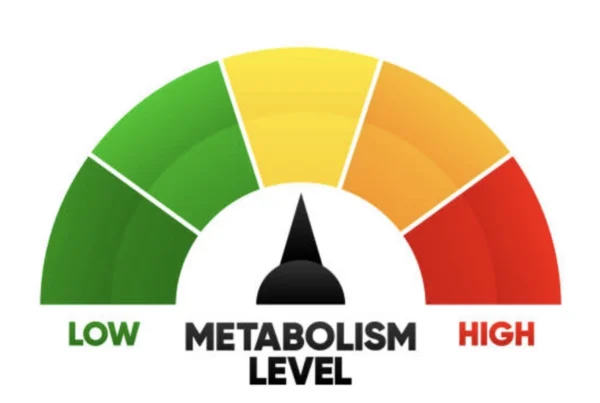Regular health checkups are often underestimated in terms of their ability to prevent serious conditions from developing. Many people only visit the doctor when they feel unwell, or experience symptoms, but routine medical examinations are key to identifying potential health risks before they become major concerns.
By detecting problems early, healthcare providers can help individuals maintain their well-being and avoid more significant health challenges in the future.
The Role of Regular Checkups in Preventive Healthcare
Routine medical checkups are not just about addressing current health concerns but also about preventing future issues. During these visits, healthcare providers assess vital signs, such as blood pressure and heart rate, and review medical history.
This process allows doctors to identify potential red flags that may not yet be causing symptoms. For instance, high blood pressure is a silent condition that can lead to heart disease if left untreated, but regular monitoring can catch it before it escalates.
In addition to monitoring blood pressure, routine checkups often include screenings for cholesterol levels, diabetes, and other common risk factors. These screenings provide a comprehensive picture of a patient’s overall health and can help guide lifestyle changes or treatments that may reduce the risk of more severe conditions.
By addressing these issues early, patients can avoid the long-term consequences of unmanaged health risks.
Moreover, regular checkups provide an opportunity to discuss preventive measures tailored to individual needs. For example, for those at risk of cardiovascular issues, doctors may recommend specific lifestyle adjustments, such as changes in diet or exercise routines, to protect heart health.
This is where preventive care for heart disease plays a crucial role, as it focuses on early detection and interventions that can significantly reduce the likelihood of developing serious heart conditions.
Detecting and Managing Chronic Conditions Early
One of the most significant advantages of regular health checkups is the early detection of chronic conditions. Many chronic illnesses, such as diabetes, hypertension, and respiratory disorders, develop gradually and may not cause noticeable symptoms in their early stages. Without regular screenings, these conditions can go undiagnosed until they become severe and harder to manage.
For instance, diabetes is a condition that can cause significant health complications if not managed properly. However, through routine blood sugar tests and other screenings, healthcare providers can detect prediabetes or early-stage diabetes. With early intervention, patients can adopt lifestyle changes or medications to control their blood sugar levels and prevent the condition from worsening.
Hypertension, or high blood pressure, is another chronic condition that can be detected early through regular checkups. If left unmanaged, hypertension can lead to heart attacks, strokes, and kidney damage. Fortunately, consistent monitoring and treatment can keep blood pressure under control, preventing these life-threatening complications.
Addressing Mental Health Through Regular Checkups
Mental health is an integral part of overall well-being, yet it is often overlooked. Regular checkups provide a platform for discussing mental health concerns, which may go unnoticed or be dismissed in daily life.
With the rising awareness of mental health issues, many healthcare providers now incorporate mental health assessments into routine checkups, ensuring that individuals receive the support they need.
Mental health conditions, such as anxiety, depression, and stress-related disorders, can have far-reaching effects on physical health. Chronic stress, for example, has been linked to an increased risk of heart disease, digestive issues, and immune system suppression.
By addressing these concerns during regular checkups, individuals can receive guidance on managing stress, coping strategies, and, if necessary, referrals to mental health professionals for further treatment.
In addition, regular checkups encourage open communication between patients and healthcare providers, creating a safe space for individuals to express any emotional or psychological concerns. This proactive approach to mental health can prevent minor issues from developing into more serious conditions that require more intensive interventions.
The Importance of Regular Cancer Screenings
Cancer is a leading cause of death worldwide, but many types of cancer are treatable when detected early. Regular checkups often include cancer screenings, such as mammograms, colonoscopies, and skin exams, which can identify cancer in its earliest stages. Early detection dramatically increases the chances of successful treatment and survival.
For example, breast cancer screenings through mammograms can detect tumors long before they are physically noticeable. Similarly, colonoscopies can identify precancerous polyps in the colon, allowing doctors to remove them before they develop into cancer.
Skin exams can reveal early signs of skin cancer, such as unusual moles or growths, which can be treated promptly if caught early.
Building a Relationship with Healthcare Providers
One often overlooked benefit of regular checkups is the relationship that develops between patients and their healthcare providers. A strong doctor-patient relationship is built on trust and open communication, which allows for more personalized and effective healthcare.
When patients feel comfortable discussing their concerns and sharing their health history, healthcare providers can tailor treatments and preventive measures to suit each individual’s needs.
Over time, this relationship also makes it easier for doctors to spot subtle changes in a patient’s health, which may indicate the onset of a serious condition. Regular visits create a consistent health record, making it easier to identify patterns or trends that may signal potential problems. This proactive approach leads to more effective care and better overall health outcomes.
Furthermore, the familiarity that comes with regular visits can alleviate anxiety or apprehension that some patients may feel about going to the doctor. As patients become more comfortable with their healthcare providers, they are more likely to seek medical attention promptly when new symptoms arise, leading to faster diagnosis and treatment.
All in all, regular checkups are an essential component of preventive healthcare, offering numerous benefits that help individuals maintain their well-being and avoid major health issues. From detecting chronic conditions early to addressing mental health and providing cancer screenings, routine checkups empower patients to take control of their health.
By fostering a strong relationship with healthcare providers and staying proactive about health, individuals can significantly reduce the risk of serious conditions and lead healthier lives. Taking the time for regular checkups may seem like a small effort, but its impact on long-term health is profound, ensuring that potential issues are identified and addressed before they become major concerns.







